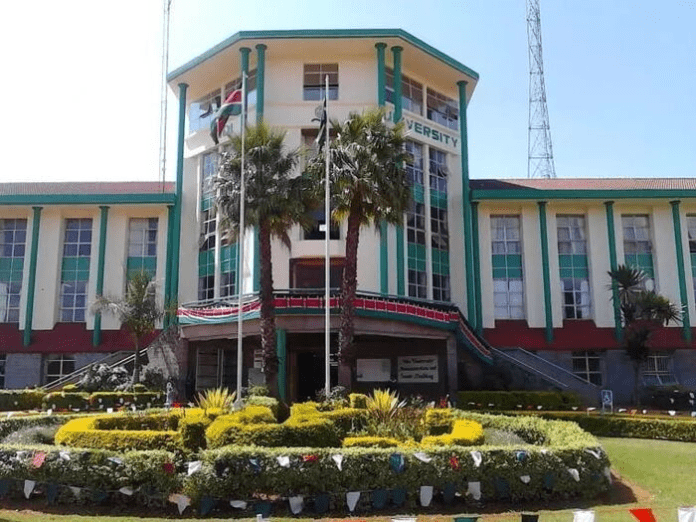Learning at Moi University faces disruption once again as the institution’s staff declared a fresh strike set to begin on Friday, January 10.
In a notice jointly signed by the University Academic Staff Union (UASU) Chapter Secretary and the Kenya University Staff Union (KUSU) Branch Secretary, the decision to resume industrial action stems from the government’s alleged failure to honor a return-to-work agreement signed between the parties.
The unions directed all university employees to abstain from their duties indefinitely until further notice.
“Following a meeting of all members of staff at Moi University, it has been resolved that the industrial action initiated in August 2024 be resumed immediately,” read part of the notice.
This announcement comes barely a month after Moi University staff ended a three-month strike that had paralyzed learning, following a deal inked with the government on November 30, 2024.
Education Cabinet Secretary Julius Ogamba and Higher Education Principal Secretary Beatrice Inyangala were present during the signing of the agreement at Moi University. As part of the deal, the government pledged an immediate injection of Ksh500 million.
The agreement, signed by Vice Chancellor Isaac Kosgey, Council Chairman Humphrey Njuguna, KUSU, and the Kenya Union of Domestic Hotels, Educational Institutions, and Allied Workers Union (KUDHEIHA), saw over 3,200 staff members resume their duties.
However, UASU Secretary General Busolo Wekesa emphasized that the deal ending the national strike did not address the unique demands of Moi University staff.
“We began our strike on August 26, 2024, and it will continue because our specific demands to the university management remain unmet,” Wekesa stated.
This latest industrial action marks another chapter in a series of protests by Moi University staff over poor working conditions and unresolved debts.
In the past, staff and students united in demonstrations against the university’s management, leading to the institution’s closure and the issuance of hiatus letters to over 1,000 academic staff.
These frequent disruptions have significantly impacted students, with some medical students overstaying for over nine years without graduating.
If the government fails to act promptly, students risk being kept out of class for the second time in two months, further compounding the institution’s challenges.







